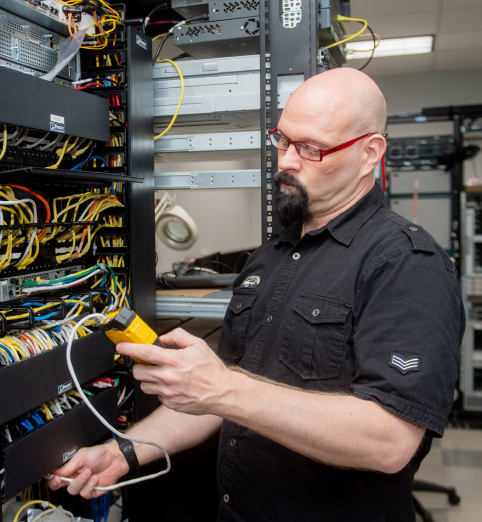Despite the monumental progress that our nation has made in terms of creating a more equitable workplace, the tech industry still struggles with embracing a more diverse workforce. The employee profiles of many tech organizations tend to lean more toward one gender over another, and it’s no secret that in the tech industry, women are significantly underrepresented. As of 2023, women represent only 33% of the tech workforce. Hence, the need for better incorporation of DEI into the workforce is loud and clear. The goal of DEI initiatives which stands for ‘diversity, equity, and inclusion’ is to represent individuals of diverse backgrounds; it can include sex, culture, and ethnicity. So, what can leaders in the tech industry do to incorporate more diversity into their companies? Here are some actionable tips on promoting DEI hiring for your organization.
Receive Support from Multiple Stakeholders
In order to maintain DEI initiatives, it’s important to receive support for your DEI goals from multiple stakeholders from early on. These include the people your organization is comprised of, such as employees, human resource, founder and co-founders, and other leaders. DEI initiatives do not stop after hiring the right candidate. Rather, it’s better to approach DEI practices as a long-term goal. Whether it’s a dedicated DEI curriculum, a DEI business strategy, providing educational resources, promoting development within your underrepresented employees, or having a specific budget reserved for DEI projects, it’s important to receive group support for these goals. By receiving group support, it’s more likely your DEI initiatives will thrive.
Know How to Address Unconscious Bias
Some people may have grown up learning about certain stereotypes regarding certain ethnic backgrounds, cultures, and even genders. Media may even reinforce some of these stereotypes in the way it portrays characters. One of the first steps you can take to address unconscious bias is to know that it exists in the first place, so you can be more active, alert, and aware about the unconscious bias within yourself. However, also know that no one is perfect, and as humans, we all have unconscious bias of some sort. Awareness leads to empathy which resolves issues surrounding unconscious bias in the tech industry.
Evaluate Your Current Hiring Process
Many hiring and interviewing practices in the tech industry follow a similar format where candidates are evaluated based on their hard skills in science, technology, and computer engineering. For instance, certain coding skills, such as JavaScript and Python, are considered the golden standard. However, it’s important to be flexible when evaluating candidates based on these hard skills. By excluding candidates who don’t fit these criteria, you may be unintentionally excluding highly qualified people who could have been great assets to your company. For example, a software engineer may not have experience in coding for machine-learning algorithms, but he or she could be a fast learner, enthusiastic, and exceptionally innovative.
Solicit Ongoing Feedback
Some interview processes are rigidly structured in a question-and-answer format where the interviewer leads the discussion. Be open to getting feedback from your interviewee and give him or her enough space to ask any questions or concerns.
Keep an ongoing discussion after the interview is over for follow-up questions. There may be some questions that the interviewee may not have thought of during the interview but are relevant to the specifics of the job position. By soliciting ongoing feedback, he or she is receiving support from you throughout the whole process.
Consider Remote Employees
By considering remote employees, you are expanding your talent pool beyond your given zip code and promoting DEI in tech. A flexible, remote working environment enables people from diverse backgrounds to be more fully integrated into the workforce. Someone may be a stay-at-home mom who needs the flexibility to tend to her toddler, another employee could be caring for their aging parent, and someone else may be an avid traveler. Regardless of their personal situation, employees from these backgrounds still have much to contribute in terms of talent, skills, and dedication. Providing a remote working environment gives these candidates a fair chance. By putting these practices in place, you’ll be well on your way in creating a diverse workforce all the while improving your company culture. Looking for more industry news? Check out all we’ve got to say here — from your IT pals at Inteleca.



